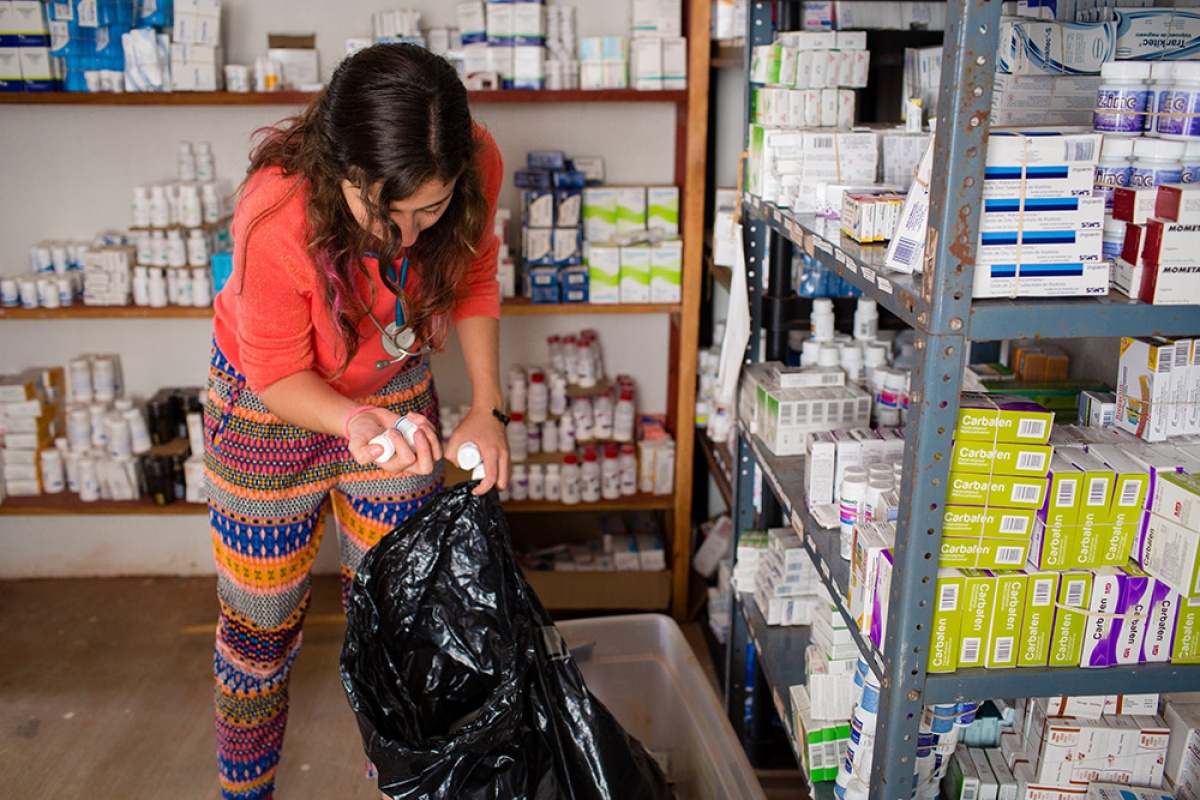We Build Health Systems: Caring for People in Chiapas
Posted on Jan 20, 2016

Ubaldo Roblero, 34, lived locked inside a shack behind his family home, a prisoner to his diagnosis of schizophrenia. A square hole in the door served as his portal to the world for nearly a decade. Beyond giving him medication, his parents didn’t know how else to respond to his violent spells—that is, until Dr. Luz Valderrama visited.
Valderrama met Roblero her first week in Soledad, a village in rural Chiapas, Mexico, where she’s spending her first year after medical school. She recognized Roblero was reacting poorly to his medication and helped him get to specialized care eight hours away.

Partners In Health started working with Mexico’s Ministry of Health in 2011 to place pasantes—or first-year doctors—like Valderrama in rural clinics in Chiapas. Now 10 clinics have doctors, which significantly improves residents’ access to health care. These young physicians provided 10,470 patient visits in 2012 and about 28,000 in 2015—a nearly 170 percent increase.
Pasantes fill a chronic gap in Mexico’s health care system. Many new doctors prefer placements in urban hospitals or research institutions. But public clinics—the ground floor of the nation’s health care system—are where they’re needed most. These clinics are often inactive, because the government doesn’t assign doctors to the locations or does so temporarily. It’s a pattern rural Chiapanecans have seen often.
PIH changed that. Our unique training program attracts pasantes who are among Mexico’s top medical school graduates. Our supervisors visit them several days each month to provide mentorship and help troubleshoot complex cases. Pasantes also return to our headquarters in Jaltenango for monthly seminars created by Harvard Medical School and accredited by Tecnológico de Monterrey, a top Mexican medical school.
Our staff ensure pasantes have the right tools by keeping clinic pharmacies fully stocked, so people like Roblero can depend on them. Each clinic also has a laptop loaded with an electronic medical record system to track patient visits.
 |
| Valderrama, center, visits Roblero, right, at his home and checks his medication.
|
This support allows pasantes to go the extra mile. Valderrama regularly visits Roblero at home and oversees his treatment. She’s happy to report that he now works in his father’s coffee fields, shares meals with his family, and visits a psychiatrist in the capital of Chiapas. Locked doors are a thing of the past.
“We’re still watching and waiting,” Valderrama says, “but his treatment has gone really well.”

